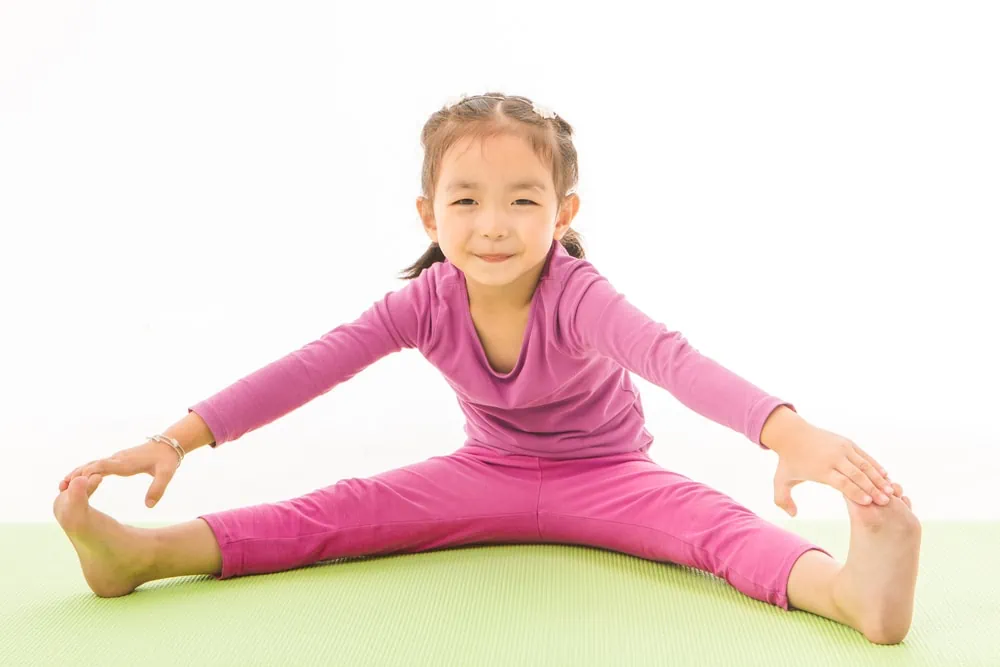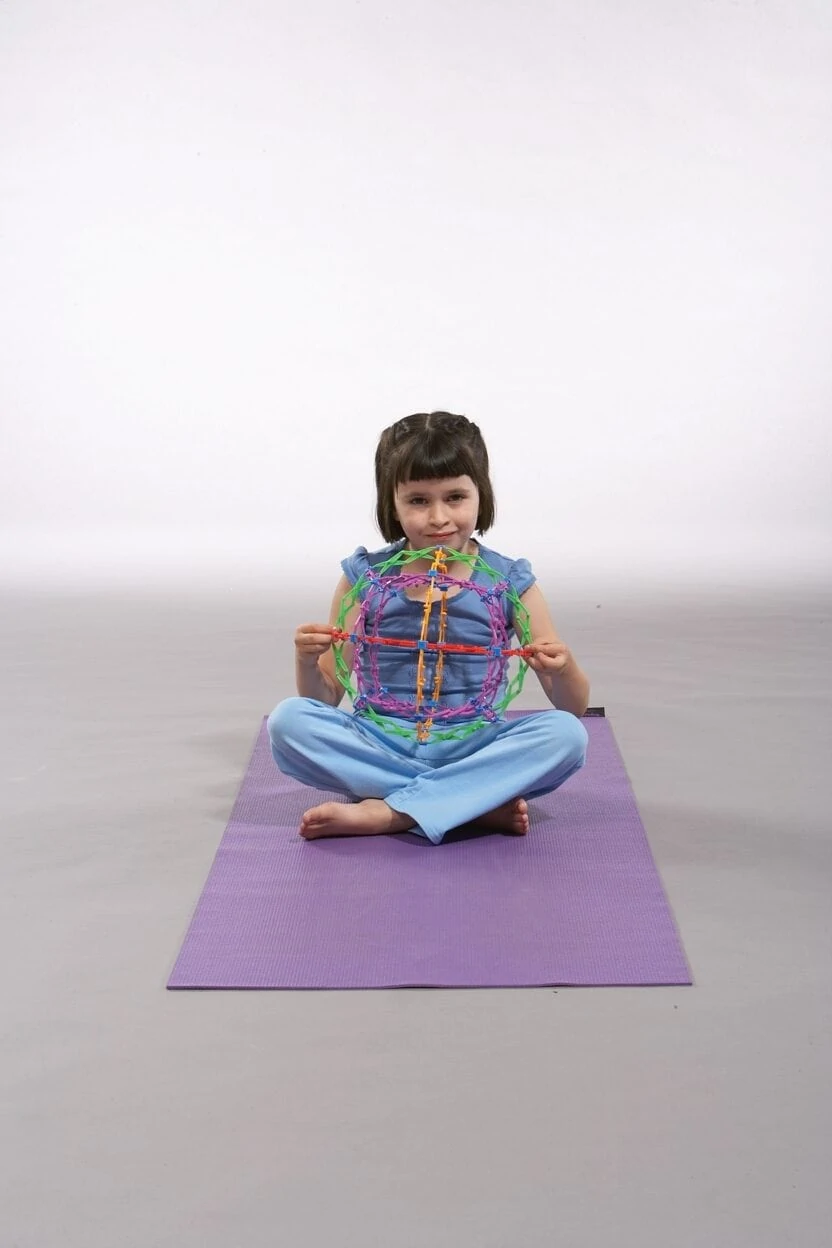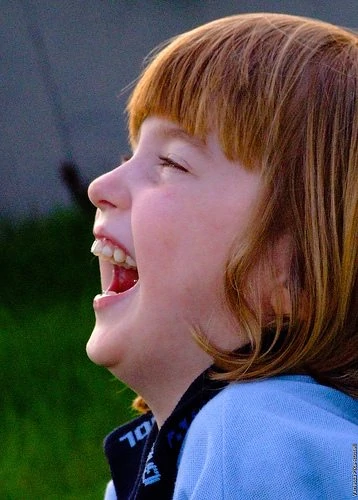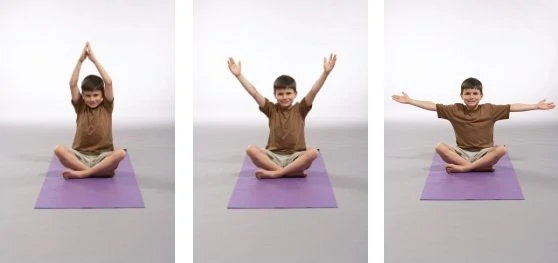If you’ve witnessed stressed little ones find calm or hyperactive preschoolers grow focused thanks to a simple yoga flow or even a couple minutes of following a breathing sphere, you understand the power of mindful movement. You’ve seen it first hand.
What you’ve witnessed is backed by science. In fact, since we first began developing Yoga Calm nearly 25 years ago, a wealth of research has confirmed and built on what we observe every day: yoga and mindfulness help improve self-regulation, mental wellbeing, and learning readiness, leading to better academic outcomes, even for the littlest learners.
Let’s take a look at a trio of recent studies…
Yoga in Early Childhood School Settings
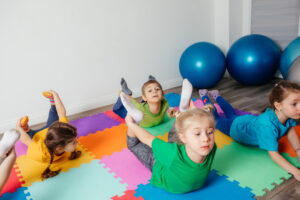
A search of five major scientific databases led the authors to 80 relevant studies. Of the 16 that made the final cut, 81% “reported beneficial effects of yoga/mindfulness on at least one SEL outcome.”
Specifically, positive effects were found for SEL domains of: behavioral self-regulation, emotion regulation, attentional capacities, executive function, ADHD symptoms, peer and prosocial behavior, and other general indicators of social-emotional functioning. Studies reviewed also indicated that YMP [yoga and mindfulness practices] programs can be successfully adapted to meet the unique needs of children in early childhood settings.
The authors declared the level of evidence to be moderate, “due to heterogeneity of measurement of social-emotional outcomes and risk of bias.” More research is needed to address these and other limitations.
Improved Attention & Better Behavioral Regulation
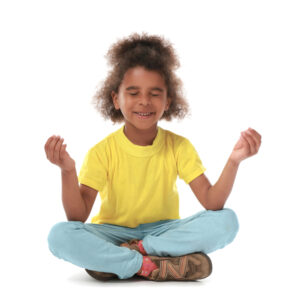
The yoga sessions were led by a certified children’s yoga teacher who was also an experienced school teacher. For 32 weeks, 122 students participated in a weekly 20-minute yoga session. Another 579 students were grouped as a control.
Results indicated that children who participated in the yoga and mindfulness program had higher total protective factor (TPF) subscores on the Devereux Early Childhood Assessment over time than children who did not receive yoga and mindfulness programming, and that the difference was statistically significant (P<0.05). Participation in the intervention group significantly predicted increases in initiative score, self-control score, and TPF score, as well as a decrease in the behavioral concerns.
These findings, the authors noted, are consistent with those of similar earlier studies, most of which “report similar findings of improved attentional control and behavioral regulation, two elements of self-regulation critical to academic performance.”
Improves Anxiety, Behavior, & Attention
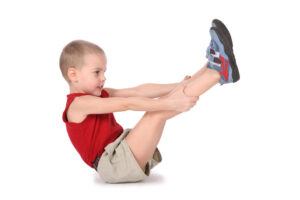
Seventy-two students total took part and were split into a test group (32 kids) and a control group (40 kids). The intervention consisted of a 15-minute age-appropriate yoga video incorporating simple poses such as Cat, Cow, and Warrior. The students’ teachers were surveyed both before and after the intervention, and the children completed a test of attention span and focus.
The teacher surveys showed improvements in the yoga group but not the control group. Students in the yoga group also scored higher on the attention/focus test.
Findings indicated that a short yoga session improves measures of anxiety, social-emotional behavior, and attention in preschool children. This study suggests that a short 15-minute yoga session may improve behavior and attention in preschool children.
Some Resources for Using Mindful Movement with Preschoolers
If you’re looking for some inspiration on using Yoga Calm with your own young students, clients, or children, we encourage you to check out two of our previous posts:
- Guest Post: Teaching Yoga Calm to Preschool Kids? Some Tips
- Teaching Yoga to Preschoolers: What Works Best?
We also have a wonderful curriculum guide by veteran school and yoga teacher Beth Taylor, Life Skills for Little Ones – an indispensable resource if you’re regularly working with preschool-aged children. You can read her story of developing the guide here.
Last, if you’re a Certified Yoga Calm Instructor with a current license, remember that you have access to our ever-growing library of class plans and other resources to give you even more inspiration for your own work with the kiddos. Not yet Certified? Learn about our program here and then get started with this on-demand course. You can start whenever you like and proceed at any pace you prefer. Most complete the full program within a year.

